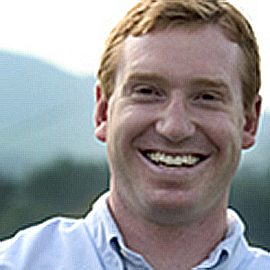
 By Jesse Laflamme
By Jesse Laflamme
Oct. 18, 2012
Growing up on the same New Hampshire farm that my great-grandfather worked a hundred years ago gave me an appreciation for farming that has stayed with me. I learned to raise chickens by working on the farm and knew from the beginning I wanted a humane farm with organic produce.
Running a growing business without sacrificing my commitment to small-scale farming, organic foods, humane treatment of animals and conservation is a constant struggle for me.
The quest for profitability has made farming very energy inefficient; and farms use a lot of energy. Farmers have become more focused on productivity and mechanization than energy conservation.
At our farm, we’re using energy conservation to lower our energy costs and improve profitability. We switched from incandescent to fluorescent lighting in all our buildings. We turn off the barn lights during the day and use natural light from windows instead. And we schedule our deliveries to coincide with pickups from our family farms to eliminate empty trucks.
Farming has also been environmentally insensitive. The overuse of pesticides has created pesticide-resistant weeds and insects. The overuse of commercial fertilizers has created a deficit in nutrients and micro-components in the soil, which then requires more fertilizers.
As an organic farm, we’re supporting an alternate approach. Our requirement for organic feed keeps farmers in business raising organic grains. The next step is to find a way to close the loop and get our manure back to the farms that supply us.
Like any business, farming also generates a lot of waste–from packaging to animal waste. This impacts energy use and the environment.
Our goal is to become a zero-waste facility. We installed a cardboard compactor on site so we can recycle cardboard waste. We recycle our plastic cartons. We compost our hen manure using an in-vessel composting system and share it with local farmers for their fields.
And to help preserve family farming, we’re recruiting other small family farms to join us as suppliers. We’ve added three other New England family farms and we’re talking with two more. They’re all good, hard-working people who believe in family farming.
This is important for several reasons. In addition to providing safe nutritious foods, they live on their farms and preserve the surrounding environment for future generations. And because they have a vested interest in their communities, they’re more likely to use sustainable farming techniques to protect natural resources and human health.
How can one small farmer make a difference?
The first step is for all of us to become aware of our energy use and our environmental impact. Then take successive steps to make changes.
As farmers, we can set an example as responsible stewards of the land. We can conserve energy, protect the environment and still make a good living.
I look forward to not having the rubbish truck come to our farm, and instead send all waste back to our suppliers. I like knowing that a few thousand acres of corn or soy will not receive pesticides or commercial fertilizer for our grain. And I take pride in my small part in making the world better for us all.
Pete & Gerry’s CEO Jesse Laflamme is a part of “Generation Organic.” After graduating from Bates College in 2000 with a degree in Economics and Political Science, Laflamme decided to return to Monroe, N.H., to join his Dad, Gerry on the family organic egg farm. Since he has taken the helm, Pete & Gerry’s is being recognized as a leader in humane, environmentally responsible and sustainable egg production. Contact Laflamme at www.peteandgerrys.com, or Marketing Director Karl Johnson at [email protected].








